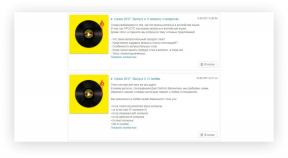“Global climate change, greenhouse gases and the carbon cycle in terrestrial and aquatic ecosystems” - course 25,000 rubles. from MSU, training 4 weeks. (1 month), Date: November 29, 2023.
Miscellaneous / / November 30, 2023
Volume of the program (academic hours): 72 (32 classroom hours)
Form of study: full-time, distance learning
Dates of classes: as groups are recruited (small groups, from 5 people)
Admission requirements: higher professional education or secondary specialized education
Program Manager: Svetlana Aleksandrovna Kulachkova, Email: [email protected], tel.8(495)939-22-33.
Responsible for additional education: Timofeeva Elena Aleksandrovna, Email: [email protected], tel. 8 (903) 22-33-99-2, 8(495)939-22-33
If necessary, the program can be adapted to the customer’s requirements - expanded, removed, or the necessary topics added to the curriculum of the additional education program
Who is this course for?
This course will be useful: for managers and employees of carbon landfills, for managers of environmental and climate projects, experts on climate change and climate risks, environmental protection specialists working in the field of accounting greenhouse gases; for graduates and university students wishing to gain additional working competence; for university teachers conducting theoretical and practical classes on environmental protection and control
What will you learn?
As part of our course you:
- learn what dangerous phenomena climate change on the planet leads to and what causes it is associated with;
- understand the main existing climate models and get acquainted with the results of climate forecasts in the 21st century;
- gain an understanding of international agreements and conventions in the field of climate change, the latest foreign and domestic initiatives to decarbonize the economy and methods of absorption greenhouse gases;
- understand the complex interactions of the biogeochemical carbon cycle and climate, find out what soil conditions occur sources of greenhouse gases entering the atmosphere, and when they are absorbed, and are there ways to manage these processes;
- learn to plan research to assess greenhouse gas fluxes from soils;
- you will be able to ask experienced specialists questions about the organization of climate change research active gases at carbon test sites and other facilities, modeling and forecasting carbon components cycle.
How are classes going?
The course takes place in the form of full-time and part-time training with full-time certification. The course includes lectures, demonstration classes, and independent work. Upon successful completion of the educational program, students will receive a certificate of advanced training of the established type.
1 Global climate change at present and forecast for the future
1.1 Climate changes in recent decades
1.2 Climate change projections. Climate models
2 Greenhouse gases and the problem of increasing their content in the atmosphere
2.1 Changes in atmospheric carbon dioxide
2.2 Natural and anthropogenic sources of greenhouse gases into the atmosphere
3 International climate change agreements and initiatives to reduce greenhouse gas emissions
3.1 Measures to prevent climate change and adapt to climate change
3.2 Scenarios for decarbonization of the world and Russia
3.3 Project ENGAGE, 4 ppm initiative, cross-border carbon tax, carbon landfills
4 Carbon cycle in terrestrial and aquatic ecosystems
4.1 Carbon in different forms in the lithosphere, atmosphere, hydrosphere and biota
4.2 Approaches to studying the carbon cycle 4.3 Biogeochemical carbon cycle at present and in the pre-industrial period
4.4 Carbon cycle at ecosystem, regional and global levels
4.5 Soil organic matter and global climate change
5 Soils as a source and sink of greenhouse gases
5.1 Soil respiration: components, factors, dynamics
5.2 Formation, absorption and emission of methane from soils
5.3 Review of methods for studying greenhouse gas fluxes from soils
final examination
Exam – 2 hours



